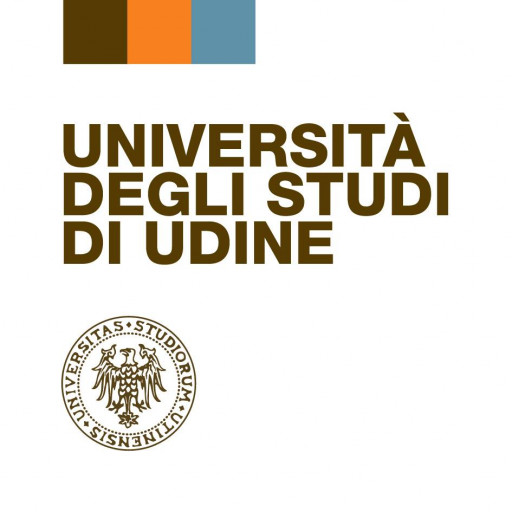Photos of university / #ucl
The Comparative Business Economics MA at UCL is focused principally at company-level study and offers the chance to examine: the role of multinationals; corporate governance and finance; privatisation; entrepreneurship, and the determinants of innovation and technological change within the European area.
The programme offers discipline-based training combined with empirical application, drawing on the experience of the 28 nations that have emerged from the former Soviet block in Europe and Asia. Students are equipped with strong foundations in both international business and economics as well as in finance and corporate governance.
Students undertake modules to the value of 180 credits.
The programme consists of three core modules (60 credits), plus a compulsory choice of one of four additional modules (15 credits), a selection of optional modules to the value of 45 credits, and a research dissertation (60 credits).
Core modules
60 credits of core modules:
- Quantitative Methods
- Advanced Quantitative Methods
- Political Economy of International Business
Optional modules
- Financial Development
- Corporate Finance and Investment in Emerging Markets
- Causes, Consequences and Control: Corruption and Governance
- Informal Practices in Post-Communist Societies
- Economics of Health and Population
- Trade and FDI Policy with reference to Eastern Europe
- Public Choice-Private Interest
- International Macroeconomic Policy
- Language modules
- Corporate Governance
- The Economics of Property Rights
Dissertation/report
All MA students undertake an independent research project which culminates in a dissertation of approximately 12,000 words.
Teaching and learning
The programme is delivered through a combination of lectures, tutorials and seminars. Students will be assessed by unseen written examinations, coursework and the research dissertation.
A minimum of an upper second-class Bachelor's degree in a relevant discipline from a UK university or an overseas qualification of an equivalent standard. Applicants are usually expected to have studied one term of both microeconomics and macroeconomics in their undergraduate degree.
Funding for the MSc in Comparative Business Economics at University College London can be obtained through various channels, including government scholarships, financial aid, and external funding sources. Full-time students pursuing this program may be eligible for student loans provided by the UK government, such as those accessible through the Student Loans Company, which can cover tuition fees and living expenses depending on residency status and other criteria. International students are encouraged to explore scholarship opportunities offered specifically for non-UK residents, which can include university-specific awards, external grants, and sponsorships from organizations related to business and economics. UCL offers a range of scholarship programs, such as the UCL Graduate Support Scheme and specific faculty bursaries, which may partially or fully cover tuition fees for outstanding applicants. Additionally, students are advised to consider external funding options such as the Chevening Scholarships, Erasmus+ grants, and private foundations that support international students in studying in the UK. For part-time students or those seeking financial support, the university also provides guidance on alternative financing options including employer sponsorships and tuition fee installment plans. It is important to note that application deadlines for scholarships are typically earlier than admission deadlines, so prospective students should plan accordingly. Financial planning should also include estimating living costs in London, which can be significant; the university and student union provide resources and guidance on budgeting for accommodation, transportation, food, and study materials. International students are often also required to demonstrate sufficient funds to meet visa requirements, which may include showing evidence of funds covering at least a year of study and living expenses. The university’s official website provides comprehensive and updated information about available funding options, eligibility criteria, application procedures, and deadlines to assist students in securing necessary financial support for their studies.
The MSc in Comparative Business Economics at University College London (UCL) is a specialized postgraduate program designed to provide students with a comprehensive understanding of the economic principles underpinning business practices across different countries and regions. The program aims to equip students with the analytical tools necessary to evaluate how economic policies, institutional environments, and cultural factors influence business strategies and outcomes worldwide. Through a rigorous curriculum, students explore topics such as international trade and finance, economic development, global market dynamics, corporate governance, and the role of government in regulating economic activity. The program emphasizes a combination of theoretical frameworks and practical applications, enabling graduates to critically assess economic issues faced by multinational corporations, policymakers, and economic analysts.
Students enrolled in the program benefit from UCL’s interdisciplinary approach, drawing insights from economics, business strategy, political science, and international relations. The program offers a blend of lectures, seminars, case studies, and research projects, fostering both individual analytical skills and collaborative learning. The faculty comprises leading academics and practitioners with extensive expertise in international economics and business. Additionally, UCL’s location in London provides students with access to a vibrant global financial and business hub, facilitating internships, networking opportunities, and engagement with industry professionals.
The MSc in Comparative Business Economics caters to students seeking careers in international business, economic consultancy, policy analysis, or further academic research. Graduates have gone on to work in various sectors such as finance, consultancy, government agencies, and international organizations. The program typically requires students to complete core courses along with elective modules tailored to their specific interests, culminating in a dissertation that addresses a real-world economic problem or corporate issue. The program’s emphasis on comparative analysis prepares students to operate effectively in diverse cultural and institutional environments, making it an appealing choice for those interested in understanding the complex global economic landscape.
Admission to the program generally requires a strong academic background in economics, business, or related fields, along with relevant work experience or motivation for international economic analysis. The University of London’s reputation for high academic standards and its diverse student body enrich the learning experience, fostering a truly global perspective. Overall, the MSc in Comparative Business Economics offers a robust foundation for students aspiring to influence or understand international business strategies through the lens of economic theory and empirical analysis.






